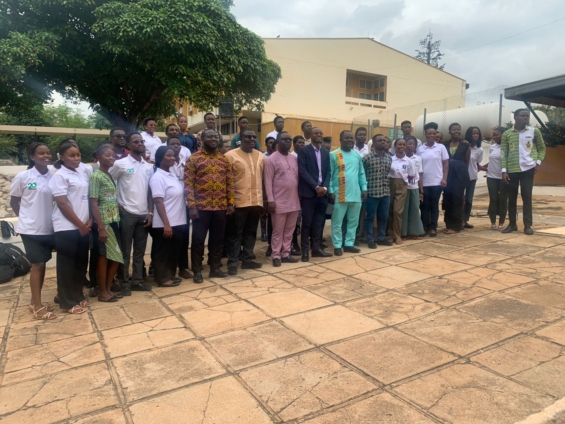The Herbal Medicine Department of KNUST is partnering with Ebenage Herbal Production for the commercialisation of research works of students in herbal medicine.
The move is aimed at reducing unemployment among graduates and contributing to the growth of the herbal industry.
Head of Department, Prof. Isaac Kingsley Amponsah says the fear of students of herbal medicine to venture into the field may fuel misconceptions of the potency of herbal medicine.
"We have people who do not know anything about clinical training. We have people who do not know anything about phytotherapy. Others do not know how to write plant names or mention them but they are making it big in the industry,” he said.
Prof. Amponsah further emphasized “if all these people are making it then you after four years can do better. What I can share with you is that there are opportunities in herbal medicine”.
He spoke at the launch of the "Hepa Plus Research Awards" at the Kwame Nkrumah University of Science and Technology.
The awards will ensure grants are made available to economically viable research works of students.
With the research funding, knowledge in the herbal medicine industry is expected to improve to ensure growth of the industry.
Founder of Ebenage Herbal Production, Dr. Ebenezer Agyemang, says “KNUST is the only university in the country training people in the sector. So we need to be the champions of quality herbal medicine. This will help students become innovative and help grow the industry as well as improving the economy”.
As part of the partnership, some of the students will be given the opportunity to work and develop with Ebenage Herbal Production.
The World Health Organization (WHO) estimates that about eighty percent of people in the developing world depend on traditional medicine to meet their primary healthcare needs, further projecting the global market for herbal products will be worth US$5 trillion by the year 2050.
In Ghana, it is estimated 951 tons of crude herbal medicines were sold on herbal markets in 2010, with a total value of around US$7.8 million.
Latest Stories
-
Attorney General Ayine won’t trade law for pressure – Deputy AG defends integrity of prosecutions
34 minutes -
Attorney General Ayine won’t prosecute without evidence – Deputy AG Srem Sai assures
1 hour -
Mahama to build Trauma and Emergency Centre in Walewale, leaves Bawumia-started project in limbo
2 hours -
Withdraw Dumsor Levy now, postponement isn’t enough – Minority Leader
2 hours -
Trump directs ICE to expand deportations in Democratic-run cities, undeterred by protests
2 hours -
MI6 appoints first female chief in 116-year history
3 hours -
Kenyan blogger’s wife seeks answers after his death in police custody
3 hours -
Gunmen kill at least 100 people in Nigeria’s Benue state, Amnesty International says
3 hours -
Ivory Coast workers say Unilever is violating their union rights amid share sale, documents show
3 hours -
Trump floats plan for undocumented farm and hotel workers to work legally in the U.S.
3 hours -
South Africa stocks suffer $3.7bn losing streak from foreign investors
4 hours -
Mahama orders military to secure Bolga-Bawku-Pulmakom road
4 hours -
Nigerian President Tinubu’s pardon of ‘Ogoni Nine’ draws ethnic group’s rejection
4 hours -
Senior Kenyan policeman arrested over death of blogger in custody
4 hours -
Egypt deports dozens more foreign nationals heading for march to Gaza
4 hours

